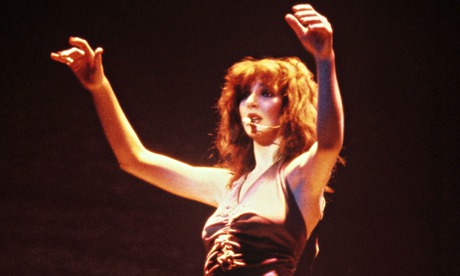
On 1 June 1993, I was fortunate enough to be at the first public performance by the reunited Velvet Underground, at the Edinburgh Playhouse. Within months, Lou Reed would be leading his old comrades into support slots with U2 and giving the impression of a man with an amazingly cavalier attitude to his own history. But that night, I managed to have a life-affirming, moving, frequently joyous experience.
It was sullied by only one irritant: a trio of leather-jacketed rock blokes (they were French, for what it’s worth), who greeted the start of each song with hugs and bursts of high-fiving – “Pale Blue Eyes! Yowza!”, “Waiting For The Man! Formidable!” – and passed between them a smuggled-in Dictaphone, whose operations they carefully monitored throughout the gig. At one point, a security guard spotted its flickering LED light and confiscated the device. But, once he had gone, another was produced, leading to a particularly frantic fit of man-hugs and exaggerated hand gestures. Meanwhile, those of us who had to suffer these interruptions got on with our evening and the quest to somehow immerse ourselves in the occasion.
Two decades on, the fondness for illicitly recording gigs has long since spread beyond the tiny numbers of people who used to do such things, and war is breaking out. On one side are artists and musicians as diverse as Beyoncé, Jarvis Cocker, the Who’s Roger Daltrey and now the venerable Kate Bush. Bush has trailed her run of comeback concerts with a gentle request that the audience might revert to the behavioural etiquette of 1979, when she last took the stage, and leave their smartphones at home. “I very much want to have contact with you as an audience, not with iPhones, iPads or cameras,” she says.
On the opposing team are the swaths of people who apparently treasure wobbly footage of speck-sized people playing distorted versions of their hits, such easygoing acts as Ed Sheeran, Jason Mraz and Weezer, and the creators of a phone app called Vyclone, which “encourages audiences to film at concerts and then brings together the footage to create a crowd-sourced video of the event”. Sounds great, that.
Now, without wanting to get too ahead of myself, it seems to me that we are at an important juncture. Even in my advanced years, I just about understand that the advance of technology means we have already said goodbye to the old-style hit single, and the album may soon go the same way. But now comes something much more shocking: the suggestion that we will soon have to lose the idea of a concert as any kind of transcendent experience, and replace it with some half-formed notion of a kind of massed film shoot (of, obviously, speck-sized people playing distorted versions of their hits).
It’s a rum idea, for sure, and it sits in the midst of an interesting if depressing conversation – featuring, among others, Dave Eggers, the academic Susan Greenfield, and the writer Nicholas Carr – which boils down to a few salient questions. Is mere recollection enough? Must everything – from nice-looking sunsets, through what you had for dinner, to Kate Bush concerts – be digitally recorded? And if it must, what will that do to our collective ideas about memory, experience, and how to live in the moment?
The answers to the first two questions seem simple enough: yes, and no. The third opens up a potentially endless debate, which nonetheless centres on a few fundamentals. Transcendence, it sees to me, should be a pretty basic part of human experience: seven or eight lagers might do it for some people, but I’ve always felt that standing in among a crowd and soaking up the right kind of music (whether played live or a via a DJ) takes some beating. Moreover, in an age in which life too often resolves itself as the endless obligation to commune with one’s iPhone, the chance to lose oneself is arguably more important than ever. If opportunistic tech-entrepreneurs and a few gullible musicians want to close such possibilities down, they can try, but one thing ought to be made clear. There is nothing inevitable about any of this. It is a matter of social norms – for which Bush, Cocker et al are trying to make a valiant stand, worthy of everyone’s support.
If you doubt this, I suggest you seek out a copy of Dave Eggers’ recent(ish) novel The Circle and turn to page 299. At this point in the story the principal character is upbraided by one of her superiors for having a transcendent experience, but keeping it to herself. The most relevant passage runs thus:
“I saw the golden lights of the city, and the black foothills toward the Pacific, and even saw a shooting star.”
“A shooting star! Lucky you.”
“I was very lucky.”
“But you didn’t take a picture.”
“No.”
“Not any video.”
“No.”
“So there’s no record of any of this.”
And then the killer line, suggestive of a cold and clinical world in which imagination, reminiscence and all the other wonders of the human mind no longer cut it: “No. Not outside my own memory.”

